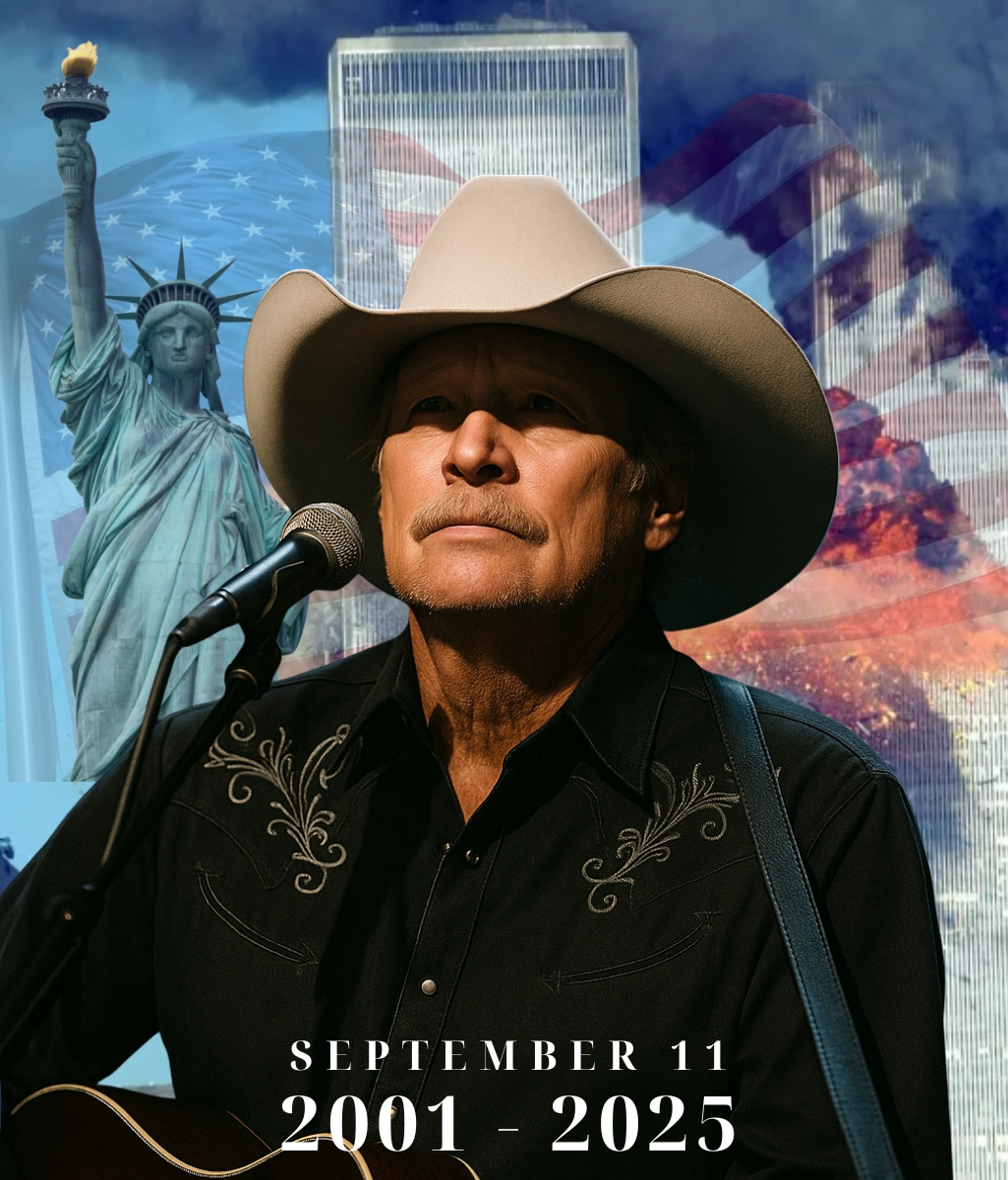
24 YEARS LATER, ONE SONG STILL STIRS A NATION — Alan Jackson’s Quiet Question That Won’t Fade
Time has a way of softening memories, dulling the sharpest moments of pain. But some events — and the songs that rise from their ashes — never truly fade.
It’s been 24 years since that clear September morning turned into one of the darkest days in American history. The images still linger for many: towers collapsing, smoke rising, sirens echoing through city streets, and a stunned silence that swept across the country. In the days that followed, words felt powerless. Politicians spoke. Reporters reported. But it was music — unexpected, raw, and deeply human — that gave voice to what so many were feeling but couldn’t express.
And from that silence, Alan Jackson quietly stepped forward.
He didn’t make a grand announcement. He didn’t plan to write a national anthem. He simply sat down, as artists do, and let his heart speak. The result was “Where Were You (When the World Stopped Turning)” — a ballad not of answers, but of questions. Not of certainty, but of reflection.
Jackson wasn’t trying to be profound. He was trying to be honest.
“I’m just a singer of simple songs,” he wrote. “I’m not a real political man…”
And yet, that simplicity was exactly what the country needed. Because at that moment, few were ready for speeches. What they needed was a mirror — something that reflected back the confusion, the heartbreak, the ordinary ways in which extraordinary sorrow shows up: watching children play, going to church, clinging to hope, asking why.
When Jackson debuted the song at the 2001 Country Music Association Awards, the room fell still. No applause. No movement. Just quiet. Because in that moment, it wasn’t a performance. It was a shared wound being gently touched, not prodded.
And here we are, nearly a quarter of a century later — and the song still plays.
Every year, around this time, people revisit it. Not because it’s nostalgic, but because it’s true. Radio stations dust it off. Television tributes include it. Families play it during moments of reflection. And each time that soft, steady voice asks the question — “Where were you when the world stopped turning?” — a lump forms in the throat once more.
What makes the song endure isn’t just its melody. It’s the sincerity behind it. Jackson never turned it into a spectacle. He didn’t build a brand around it. He let it breathe. Let it be what it was — a deeply personal reflection that happened to speak for millions.
Over time, “Where Were You” has become more than a song. It’s become a ritual. A touchstone. A piece of national memory that gently invites us to pause — not to relive tragedy, but to remember the unity that briefly bloomed in its wake. The way strangers held doors. The way flags waved from every porch. The way silence, for once, brought people closer.
And perhaps that’s why the song still matters.
Because in a world that often feels divided, fast, and unforgiving, Alan Jackson’s quiet question still calls us back to something slower, more human. A moment where we all looked up from our phones, stepped out of our routines, and remembered what it means to care for one another.
So, on this 24th year of remembrance, the question echoes once more. Not just from stages or speakers — but from living rooms, car radios, and quiet moments before bedtime.
Not to reopen old wounds.
But to remind us of the strength found in humility.
The healing found in honesty.
And the power of one voice asking what millions still feel.
Alan Jackson’s song wasn’t meant to last forever.
But maybe that’s why it has.
